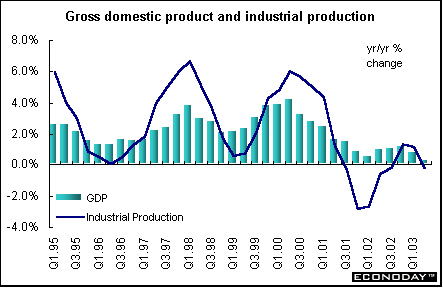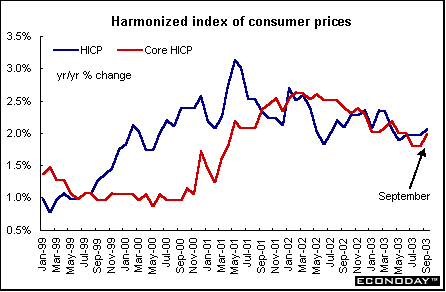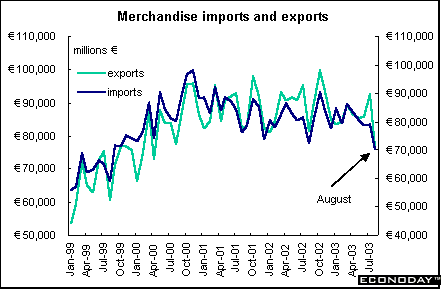

|
Gross domestic product and industrial production - Growth remains anemic in the eurozone, with most analysts readily acknowledging that the economy will not function to its fullest capacity unless serious structural reforms are undertaken for the labor markets and the financial markets. The industrial sector has been the most dominant for the larger countries and the sector is embedded with labor rigidities that present a formidable challenge. It would require relinquishment of many benefits. For example, it is difficult to fire employees or to cut back in times of weak growth without paying exorbitant severance and ongoing jobless benefits. These can be so lucrative that the incentive to find another job is non-existent.
Until recently, the EMU has benefited from the low value of the euro against the U.S. dollar, making its exports cheaper in the United States while those from the U.S., more expensive in Europe. This is no longer true and it has become more difficult to export. This comes at an unfortunate time because the EMU economy is standing still while Germany, Italy and the Netherlands are in recession and French GDP declined in the second quarter. The European Central Bank has been accused of being too blasť about the worldwide slowdown's impact on the EMU. And now that the euro has appreciated against the U.S. dollar, manufacturing exports will be most affected, especially those from Germany and Italy. Inflation - As measured by the harmonized index of consumer prices, inflation has been above the ECB's two percent inflation ceiling in large part because of energy prices and higher than targeted money supply growth. Prices remain sticky, with few real price declines. EMU countries were hit harder than the United States by spiking energy prices. Crude oil is priced in U.S. dollars and this made crude even more expensive because of the low value of the euro. Now slower growth and the rising euro are lessening price pressures, and the HICP is hovering just at the 2 percent ceiling. The ECB's mandate is inflation control, which seems to have priority over encouraging growth.
Unemployment - Europe's unemployment rate has been stubbornly high because of labor market rigidities, which make it difficult for employers to lay workers off when business growth weakens. These limitations don't allow business to function with the flexibility that U.S. firms have and reduce costs rapidly in times of slowing growth. Unemployment reached a low in September and October 2001 and has been slowly rising since then.
Merchandise trade - Trade plays an important role in European growth. German and Italian manufacturing sectors especially benefited from the weak euro and it allowed them to sell their products overseas at reduced prices. However, worldwide growth weakened demand at the same time that the euro rose in value, making exports more expensive while allowing imports into the EMU at more advantageous prices.
|
Currency • European Central Bank • Equities Markets



